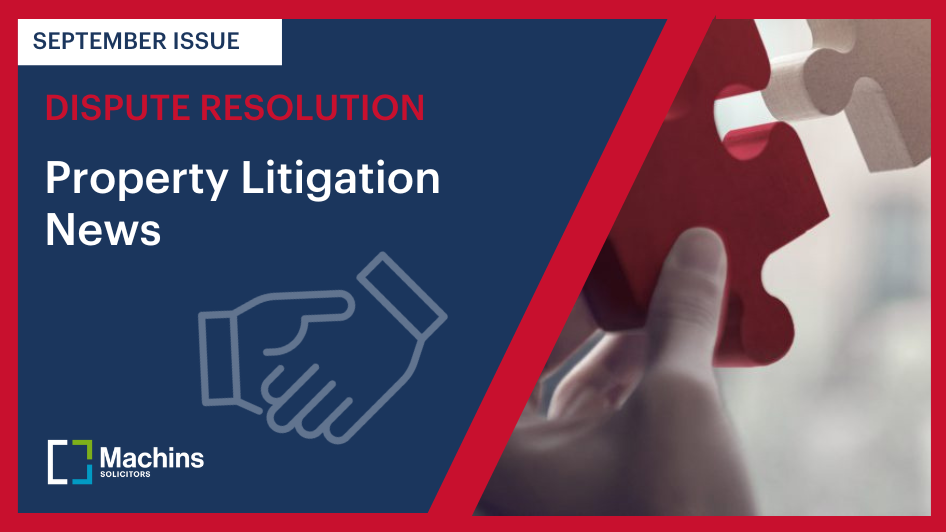Property disputes can quickly escalate into complicated legal battles. Whether you’re a property owner, landlord, or investor, understanding property litigation is crucial for protecting your interests. This guide breaks down everything you need to know about property litigation, including key steps, common pitfalls, and practical advice to navigate the process effectively.
What is Property Litigation?
Property litigation refers to the legal process of resolving disputes related to property ownership, boundaries, leases, and other real estate issues. Unlike other types of litigation, property disputes often involve unique elements such as property value assessments and land use regulations.
Key Steps in Property Litigation
- Initial Consultation The journey starts with a consultation with a property lawyer. This is your chance to discuss the dispute, review your evidence, and understand the potential legal outcomes. Your lawyer will provide guidance on the viability of your case and the best legal strategy.
- Pre-Litigation Steps Before heading to court, your lawyer might suggest alternative dispute resolution methods such as negotiation or mediation. These processes can often resolve conflicts more efficiently and amicably, saving both time and money.
- Filing a Claim If pre-litigation efforts fail, the next step is to file a formal claim with the court. This involves drafting a complaint detailing your allegations and desired outcomes. Once filed, the claim must be served to the opposing party, who then has the opportunity to respond.
- Discovery Phase Discovery involves the exchange of relevant information between parties. This can include documents, emails, and witness testimonies. The discovery phase helps both sides prepare their cases and can sometimes lead to a settlement if both parties gain a clearer understanding of each other’s positions.
- Pre-Trial Procedures Before the trial begins, both parties may file pre-trial motions to address specific issues or request the dismissal of certain claims. Pre-trial hearings will help the court resolve these motions and set the agenda for the trial.
- Trial The trial is where both parties present their cases in court. This includes submitting evidence, questioning witnesses, and making legal arguments. The judge or jury will then make a decision based on the presented information.
- Post-Trial Actions After the trial, the losing party may appeal the decision if they believe there were errors in the legal process. The appeal involves a higher court reviewing the case for any legal mistakes.
- Enforcement Once a judgment is made, it must be enforced. This means implementing the court’s decision, which could involve transferring property, paying damages, or complying with other court orders.
Common Challenges in Property Litigation
- Complex Legal Issues Property litigation often involves complex legal issues related to property law, contracts, and regulations. It’s crucial to work with an experienced attorney who can navigate these complexities effectively.
- High Costs Litigation can be expensive, involving legal fees, court costs, and expenses for expert witnesses. Understanding the potential costs and exploring alternative dispute resolution methods can help manage expenses.
- Time-Consuming Process Property litigation can be a lengthy process, sometimes taking months or even years to resolve. Patience and thorough preparation are key to navigating this lengthy journey.
- Emotional Stress Legal disputes can be stressful and emotionally draining. It’s important to have a support system in place and to work with professionals who can help alleviate the stress of the legal process.
Frequently Asked Questions
- How Long Does Property Litigation Take? The duration of property litigation can vary based on the complexity of the case and the court’s schedule. On average, it may take several months to years to reach a resolution.
- What Are the Costs Involved? Costs can include attorney fees, court fees, and expenses for evidence and expert witnesses. It’s essential to discuss potential costs with your lawyer and explore ways to manage expenses.
- Can I Handle Property Litigation Without a Lawyer? While it’s possible to represent yourself, it’s generally advisable to hire a lawyer specializing in property law. An experienced attorney can provide invaluable guidance and increase the likelihood of a favorable outcome.
- What Happens If I Lose the Case? If you lose, you may be required to pay the opposing party’s legal costs and comply with any court orders. It’s important to discuss potential outcomes and implications with your lawyer.
Conclusion
Property litigation can be complex and daunting, but understanding the process can make a significant difference. From initial consultations to post-trial enforcement, being well-informed helps you navigate the legal landscape more effectively. Always seek professional legal advice and consider all available options to achieve the best outcome for your property dispute.
